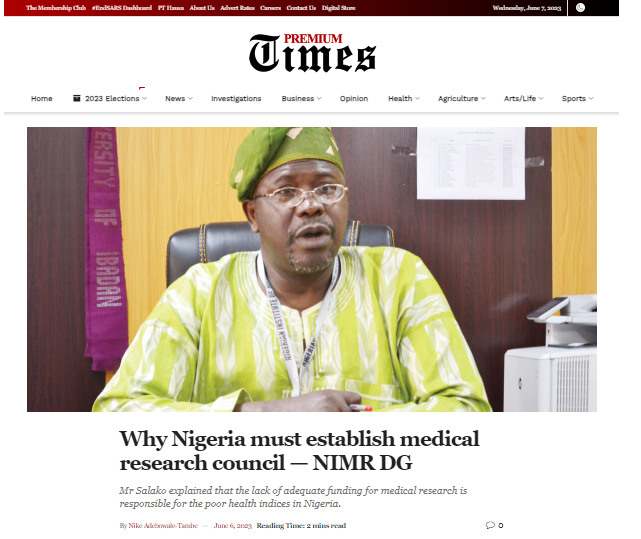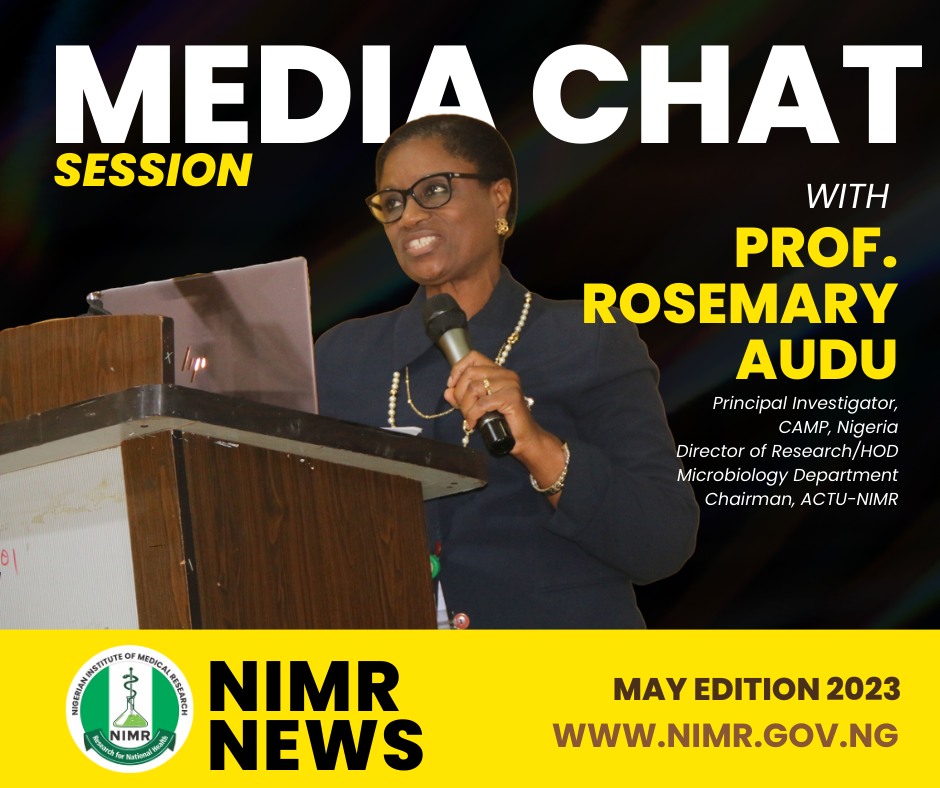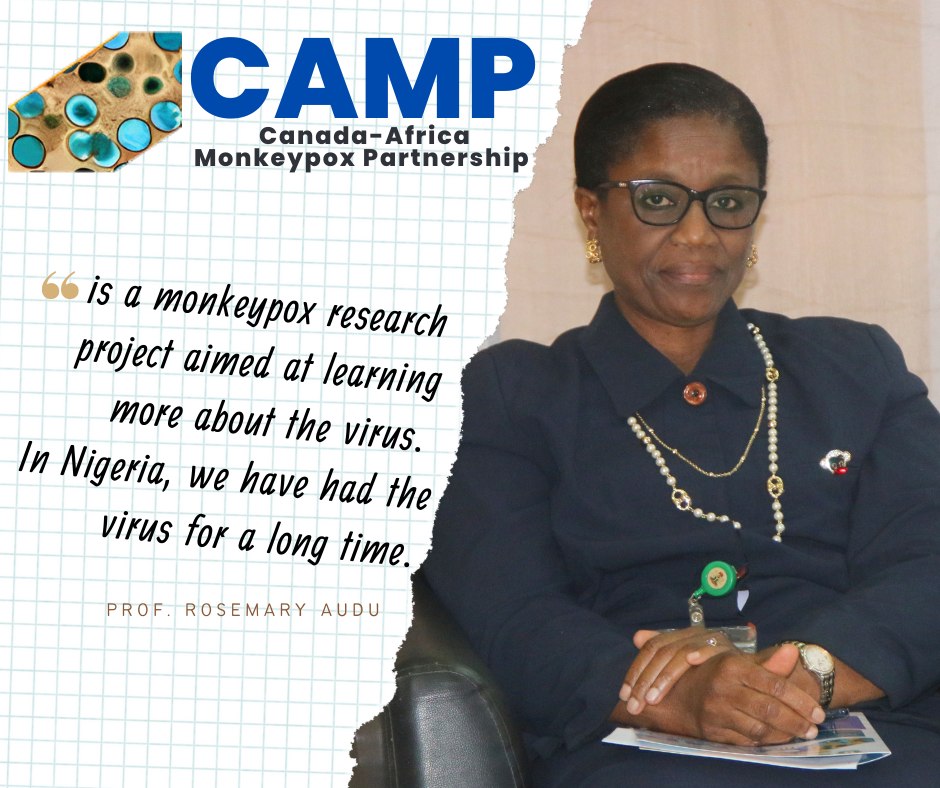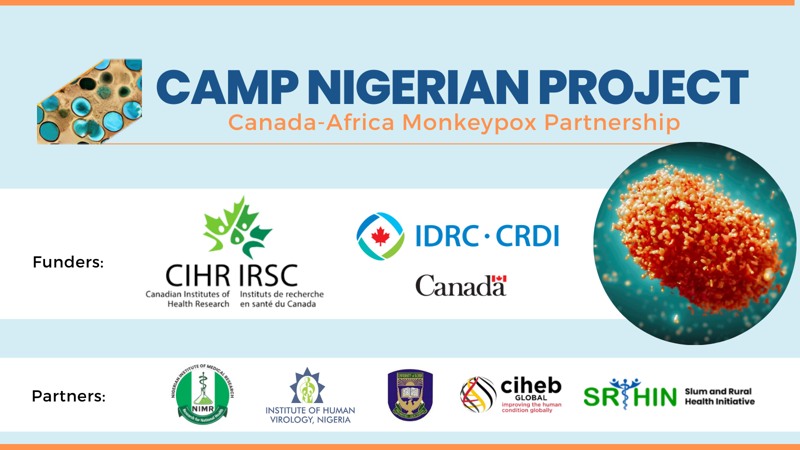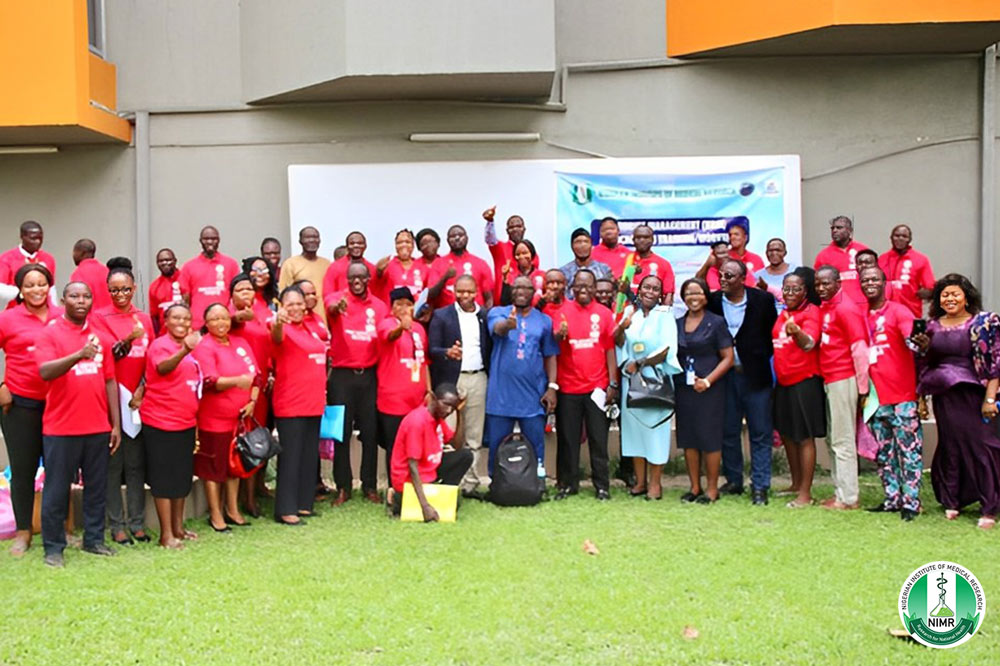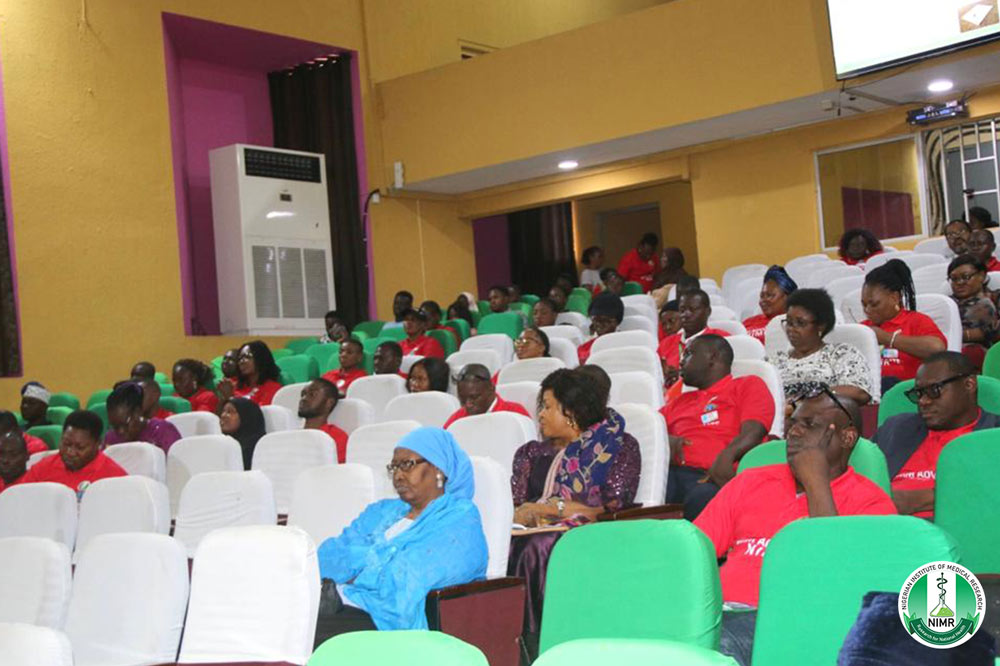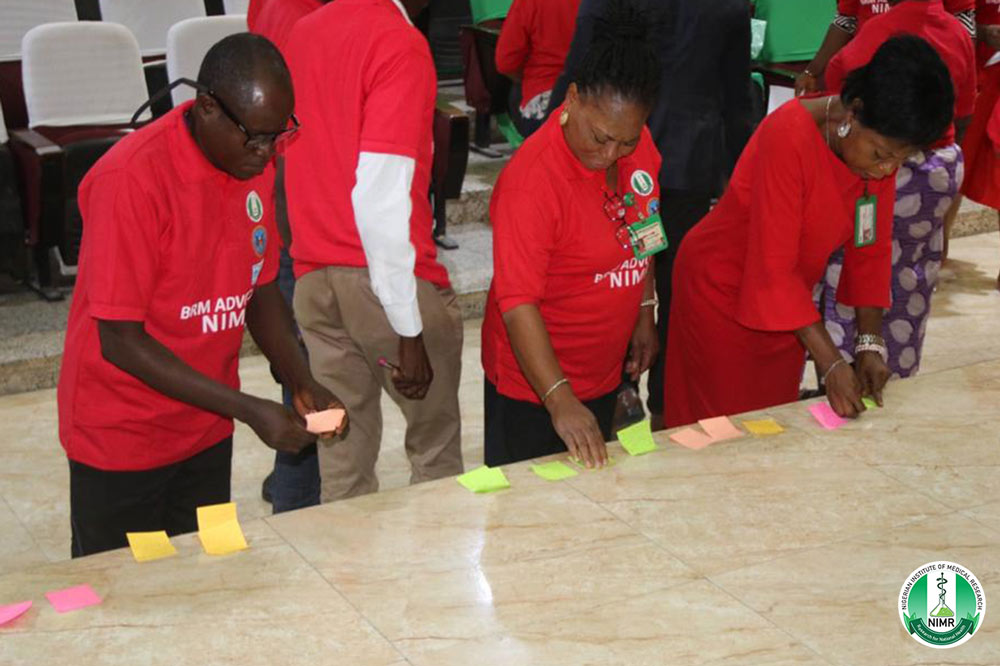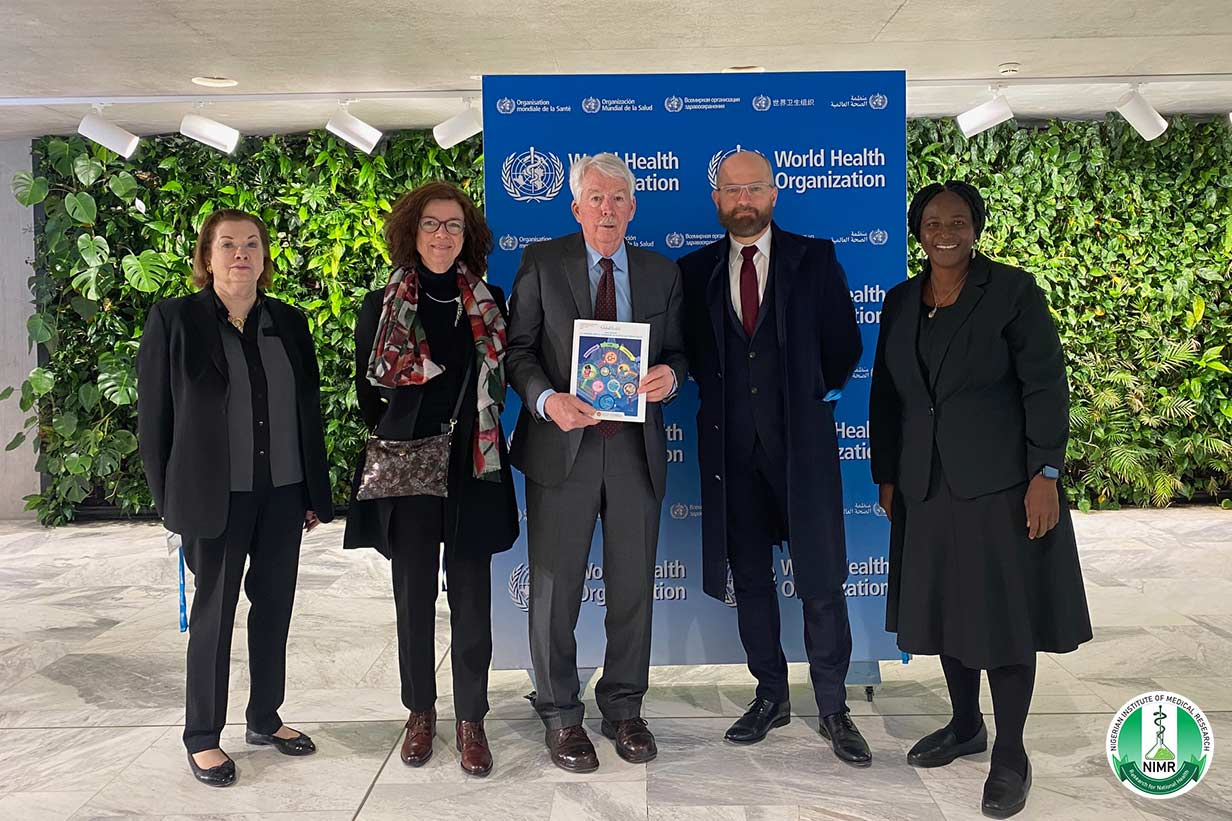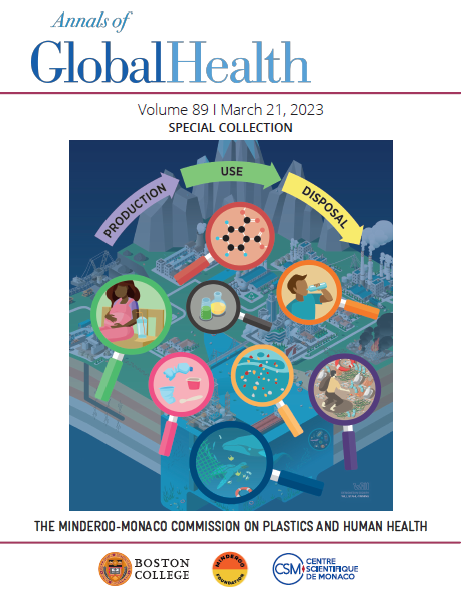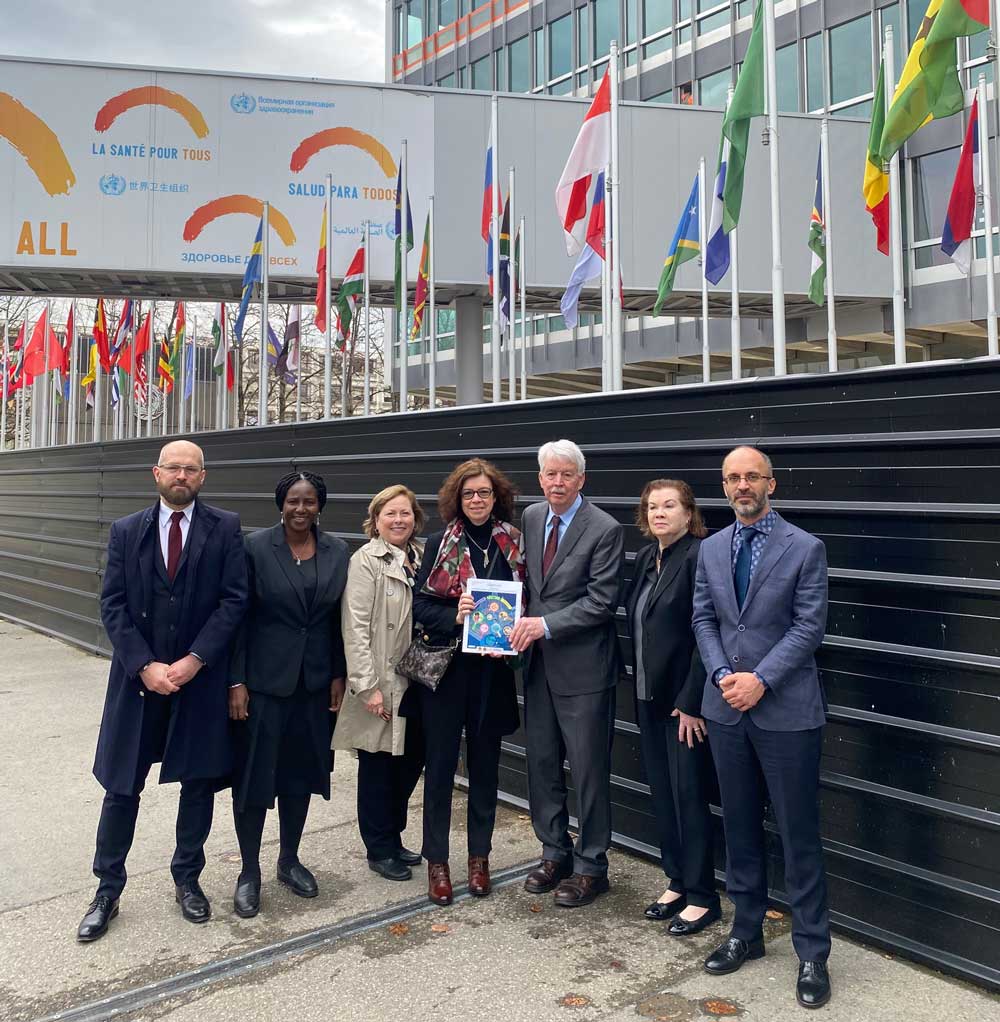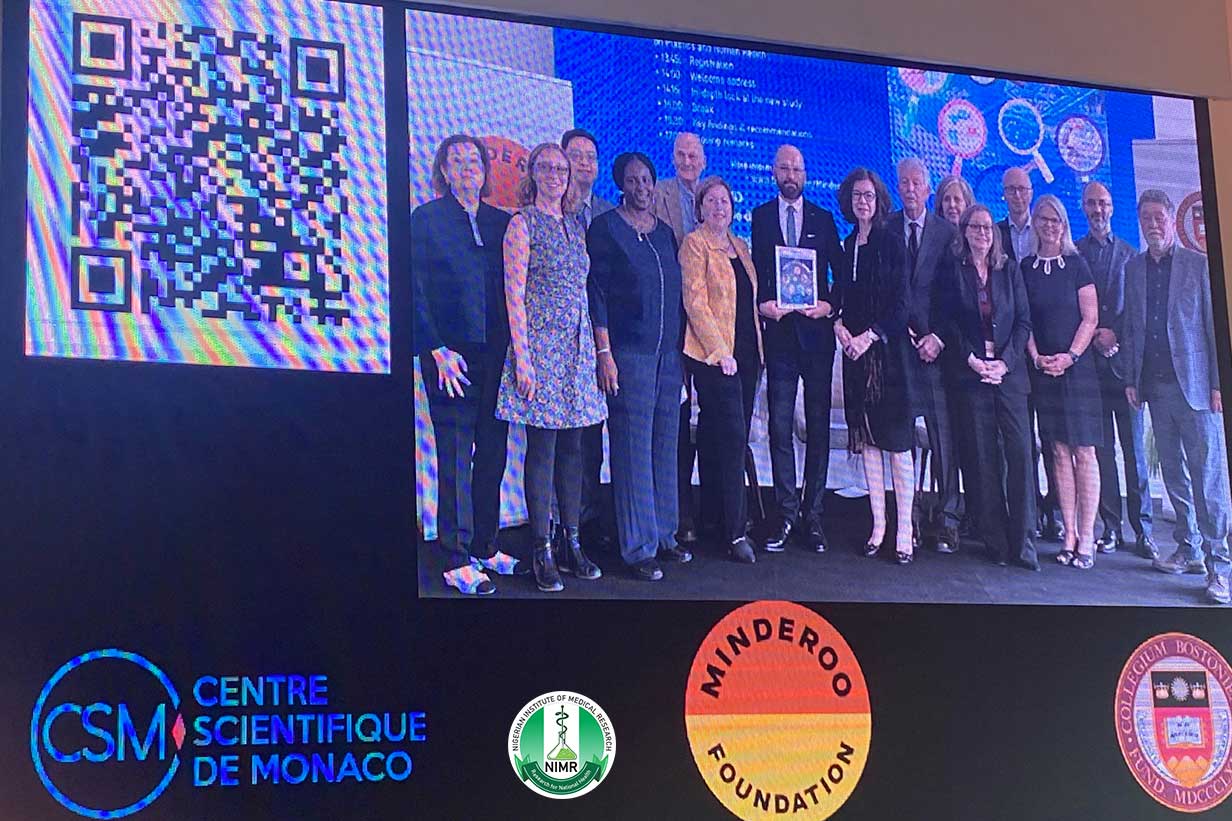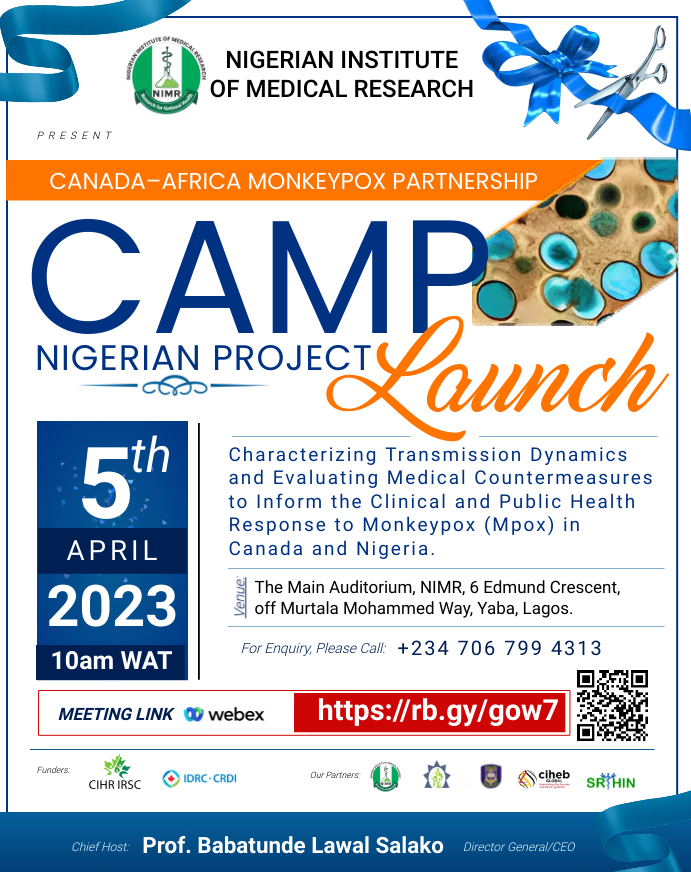Can you please introduce yourself?
I am Rosemary Audu, Professor of Virology at Lead City University, Ibadan and Director of Research at the Nigerian Institute of Medical Research. I am the Head of the Department of Microbiology, as well as, the Chairman of the NIMR Anti-Corruption and Transparency Unit (ACTU).
We are aware of your recent project on the monkeypox partnership; please tell us more about it.
The Canada-Africa Monkeypox Partnership (CAMP) is a monkeypox research project aimed at learning more about the virus. In Nigeria, we have had the virus for a long time. We had a few cases in 1971 when it was first reported in Nigeria, then in 2017, when we had an outbreak, and the most recent was in 2022. This virus has been reported in the developed world, with a strain derived from Nigeria wreaking havoc across the world. In 2022, so many individuals became infected, some died, and the disease was so widely spread.
The clinical presentation of mpox in the developed world is different from the picture in Nigeria. They have reported the disease more in immunocompromised patients and among gay and bisexual men. So, we want to understand the transmission dynamics of mpox in humans and animals in Nigeria in comparison with Canada. We also want to know the role of asymptomatic infection in our population. We shall explore the feasibility and acceptability of therapeutics and vaccines in the control of the disease in Nigeria.
Who are your collaborators for this project?
Our collaborators are based in Canada however, in Nigeria, five institutions are partnering to execute this project. The Institute of Human Virology Nigeria (IHVN) and Maryland Global Initiative Corporation (MGIC) will coordinate the clinical component, the University of Ilorin is responsible for the animal studies, Slum and Rural Health Initiative Network (SHRIN) will coordinate the community studies and NIMR will be in charge of all the laboratory analyses.
What is the prevalence and mortality ratio of monkeypox in Nigeria and why is this partnership so important?
Nigeria has the largest number of cases. We recorded nearly 800 cases between January 2022 and March 2023, which is the highest in Africa. We also have the largest number of deaths, with 9 recorded over this period. It is a problem in Nigeria, and we have the most cases, thus we must look into it and contribute to its resolution.
Are there vaccines against monkeypox and are they readily available in the country?
There are no vaccines known to be effective against monkeypox globally. There is a vaccine that has been used and recommended as pre-exposure prophylaxis for gay and bisexual men, as well as those who have occupational hazards, but they have only been tried in animals and phase I studies in the lab, but they have not been licensed in humans. So, one of the things this project hopes to achieve is to test it in humans, but that component will take place in Canada. Due to the decreasing number of mpox cases in Canada, we may have an opportunity to test those vaccines in Nigeria, to evaluate their effectiveness during this study.
Is the project focusing on rural, semi-rural, and urban communities in the country?
Our focus is anywhere we find the patients, we shall go there. Initially, we selected four states with the highest number of cases plus the FCT. However, due to the decline in the number of cases, we shall work with the Nigerian Infectious Diseases Society (NIDS) to enroll suspected cases anywhere we find them across every stratum of the country, urban or rural.
What are your strategies for community engagement, particularly in the hard-to-reach areas in the country?
We are collaborating with members of the community advisory board, who have prior experience reaching out to the community. We will draw on their expertise, and they will advise us on how to get to these places. One interesting aspect of this is that we will not only reach humans but also animals. We shall work with veterinary doctors all over the country and their associations, to get the animals and pets in the homes of confirmed cases. So, we are working with a group of experts; it is a multidisciplinary project, and we are optimistic that it will be successful.
What impact would this project have on the public health situation in the country?
Because monkeypox affects the broader populace, it is stigmatized. Aside from that, those affected are unable to go out, and their source of income would be impacted. Someone recently related their experience of drinking a lot of “agbo” (local concoction), which has its own set of adverse effects. There are so many uncertainties about this virus hence, findings from this study will offer the public accurate information about what they should avoid and prevent, which I am confident will benefit the country much.
Does NIMR have adequate capacity (human resources & equipment) to carry out this project?
NIMR has the capacity. Our component is majorly the laboratory component, and NIMR has a well-equipped laboratory to carry out this investigation. We will also enrol patients from our HIV clinic, which is one of the largest in Nigeria, so we have what it takes to run our component, and then we will support others with laboratory tests, so we have what it takes. Additionally, funds have been granted, and the NIMR management is supportive of this project. I am confident that we will conduct it successfully by the grace of God.


